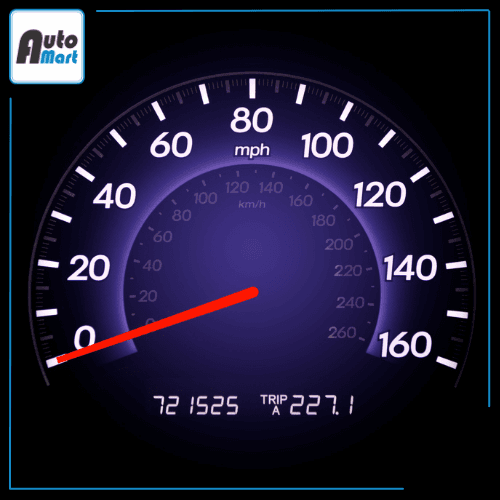Are you wondering how mileage on a used car affects its value and performance? When considering the purchase of a pre-owned vehicle, understanding the implications of mileage is essential. This knowledge can help you make an informed decision and ensure you get the best deal. Let’s take a look at what you need to know about mileage on a pre-owned car. For a great selection of used vehicles, visit Auto Mart today.
 Photo by Costa Mokola on Unsplash
Photo by Costa Mokola on Unsplash
Understanding Mileage and Its Impact
Mileage refers to the total distance a car has travelled since it was first manufactured, and it is one of the most critical factors buyers consider when purchasing a used car.
Here’s how high mileage can significantly impact a vehicle's value, performance, and longevity.
1. Depreciation and Resale Value
- Cars with high mileage tend to depreciate faster and have a lower resale value compared to those with lower mileage. This is because wear and tear are directly proportional to the distance travelled. Understanding pre-owned mileage value can help buyers gauge the potential resale value of the vehicle in the future.
Read: Understanding and Minimising Vehicle Depreciation
2. Maintenance and Repair Costs
- Higher mileage often means more frequent maintenance and repairs. Components such as the engine, transmission, and suspension may require more attention as the car ages. Buyers should be prepared for these additional costs when considering a used car with high mileage.
3. Vehicle Condition
- While high mileage can indicate extensive use, it does not always mean the car is in poor condition. Regular maintenance and proper care can keep a high-mileage vehicle running smoothly. Buyers should request maintenance records and have the car inspected by a mechanic to assess its condition accurately.
Read: The Six Most Common Car Problems You Might Face
What is Considered High Mileage?
In South Africa, the average car is driven about 15 000 to 20 000 kilometres per year. A used car with mileage above this range is generally considered to have a high mileage. However, the definition of high mileage can vary depending on the make and model of the car. Some vehicles are built to last longer and can handle a higher mileage better than others.
Now that we understand the impact of mileage on a used car, let’s evaluate the value.
 Photo by Jamie Street on Unsplash
Photo by Jamie Street on Unsplash
Evaluating Pre-Owned Mileage Value
When assessing the pre-owned mileage value, buyers should consider the following factors:
1. Age of the Vehicle
- A newer car with high mileage might be a better option than an older car with low mileage. This is because newer cars generally have more advanced technology and better safety features.
2. Usage History
- How the car was used can affect its value. A car used mainly for highway driving might be in better condition than one used for short trips in the city. Highway driving causes less wear and tear on the vehicle compared to stop-and-go city driving.
3. Maintenance Records
- A well-maintained high-mileage car can be a better buy than a poorly maintained low-mileage one. Consistent servicing, oil changes, and timely repairs can keep a car in excellent condition, regardless of its mileage.
Benefits of Buying a High-Mileage Used Car
While low mileage is often preferred, buying a high-mileage used car has its advantages:
1. Lower Purchase Price
- High-mileage cars are typically priced lower than their low-mileage counterparts. This makes them an attractive option for budget-conscious buyers.
2. Depreciation Rate
- These cars have already experienced significant depreciation. Therefore, they may depreciate at a slower rate compared to newer, low-mileage vehicles.
3. Availability
- There is a larger selection of high-mileage cars available in the market. This increases the chances of finding a car that meets your specific needs and preferences.
Tips for Buying a High-Mileage Used Car
If you decide to go for a high-mileage used car, here are some tips to ensure you make a wise purchase:
1. Get a Vehicle History Report
This report provides detailed information about the car’s past, including accidents, title status, and service records. It helps you understand how the car was maintained and any potential issues it might have.
2. Have the Car Inspected
Hire a trusted mechanic to inspect the car thoroughly. They can identify any hidden problems and give you an estimate of potential repair costs.
3. Negotiate the Price
Use the high mileage as a bargaining chip to negotiate a better price. Be prepared to walk away if the seller is not willing to lower the price to reflect the car’s condition and mileage.
4. Check for Recalls
Ensure that all recall repairs have been completed. This is crucial for the safety and reliability of the vehicle.
Understanding the impact of mileage on a used car is essential for making an informed purchase decision. While high mileage can affect a car’s value and maintenance costs, it does not always mean the car is a bad buy. By evaluating the pre-owned mileage value and considering factors such as the car’s age, usage history, and maintenance records, you can find a reliable and affordable used car. For a wide selection of used cars with varying mileage, visit Auto Mart and explore the options available.






